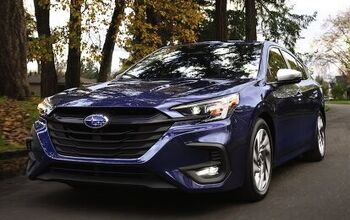Which Nation Tops the List for Vehicle Ownership Per Capita? The Answer Might Surprise You
In 2020, the United States reported a total of 289 million vehicles in operation, making up approximately 18 percent of the global count. This marked a significant increase, more than doubling the number since the 1960s. When exploring car ownership rates on a global scale, it's crucial to understand the variances in ownership, growth trends, and the rising influence of the global middle class on these dynamics.
Worldwide Rankings in Vehicle Ownership
The United States follows with a considerable 860 vehicles per 1,000 people, reflecting a robust vehicle market. Similarly for North America, Canada follows the States with 707 vehicles per 1,000 people. Europe presents a mixed scenario, with Poland and Italy notable for their high vehicle per capita rates. Poland, with 761 vehicles per 1,000 inhabitants, shows substantial vehicle ownership yet has a minimal adoption of electric vehicles. Italy stands with 756 vehicles per 1,000 people just slightly less than Poland. In stark contrast, Norway, with 635 vehicles per 1,000 people, has embraced electric vehicles more extensively, with a significant proportion of its vehicle market being electric.
In the top spot however is New Zealand with 869 vehicle per 1,000 people where the majority of their cars are imported from Japan.
The Surge in Global Vehicle Ownership
The expansion of the global middle class has propelled rapid growth in vehicle ownership in several countries. Vietnam, for instance, has experienced a dramatic increase in motorization, with an annual growth rate of 17 percent between 2015 and 2020. China and India also saw significant rises, highlighting a global trend towards increased vehicle ownership.
Electric Vehicles: The Future of Mobility
Electric vehicles (EVs) are gaining traction worldwide, with China leading the charge. The country houses more than half of the global EV fleet, a testament to its strategic position near essential raw materials for EV batteries and its robust battery production capabilities. Government policies have played a pivotal role in this sector, with China and Norway implementing strategies to overcome operational challenges and promote EV adoption. Norway, in particular, is on a path to eliminate sales of internal combustion engine vehicles by 2025, showcasing the country's commitment to sustainable mobility.
Concluding Thoughts
As vehicle ownership continues to evolve, the global landscape reveals a complex interplay between traditional vehicles and the emerging EV market. Countries like New Zealand and the U.S. demonstrate high vehicle per capita rates, while nations such as Vietnam and China show rapid growth, driven by economic expansion and policy initiatives. The shift towards electric vehicles, led by China and Norway, underscores a global trend towards more sustainable forms of transportation.
This article was co-written using AI and was then heavily edited and optimized by our editorial team.
More by TTAC Staff
Latest Car Reviews
Read moreLatest Product Reviews
Read moreRecent Comments
- SCE to AUX Everything in me says 'no', but the price is tempting, and it's only 2 hours from me.I guess 123k miles in 18 years does qualify as 'low miles'.
- Dwford Will we ever actually have autonomous vehicles? Right now we have limited consumer grade systems that require constant human attention, or we have commercial grade systems that still rely on remote operators and teams of chase vehicles. Aside from Tesla's FSD, all these systems work only in certain cities or highway routes. A common problem still remains: the system's ability to see and react correctly to obstacles. Until that is solved, count me out. Yes, I could also react incorrectly, but at least the is me taking my fate into my own hands, instead of me screaming in terror as the autonomous vehicles rams me into a parked semi
- Sayahh I do not know how my car will respond to the trolley problem, but I will be held liable whatever it chooses to do or not do. When technology has reached Star Trek's Data's level of intelligence, I will trust it, so long as it has a moral/ethic/empathy chip/subroutine; I would not trust his brother Lore driving/controlling my car. Until then, I will drive it myself until I no longer can, at which time I will call a friend, a cab or a ride-share service.
- Daniel J Cx-5 lol. It's why we have one. I love hybrids but the engine in the RAV4 is just loud and obnoxious when it fires up.
- Oberkanone CX-5 diesel.


































Comments
Join the conversation